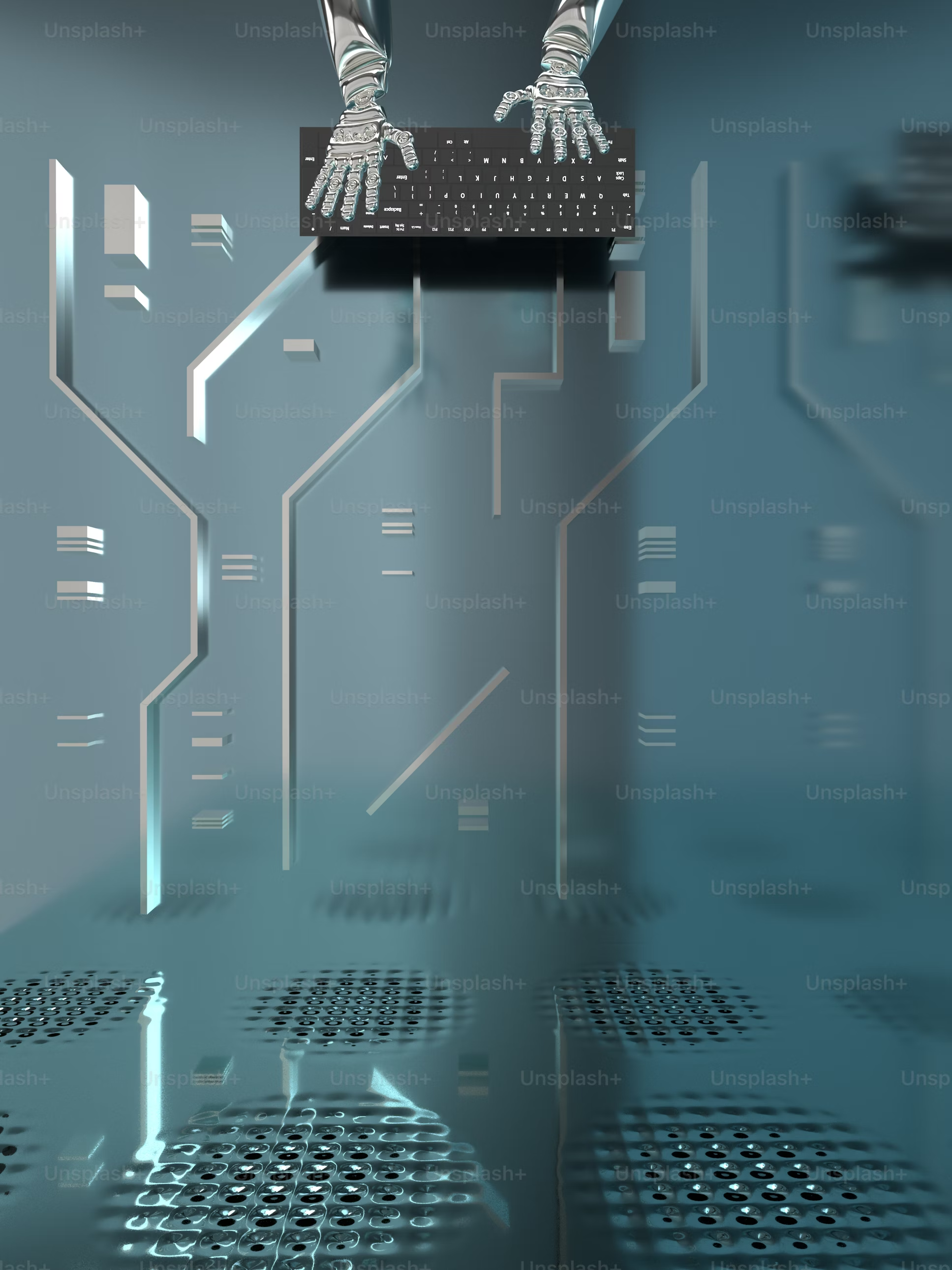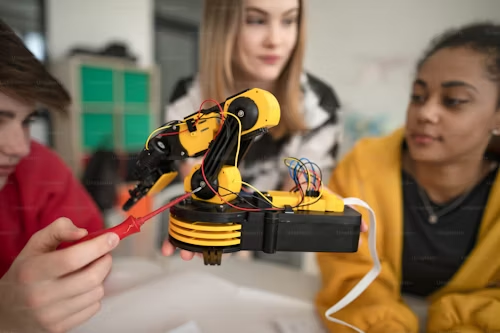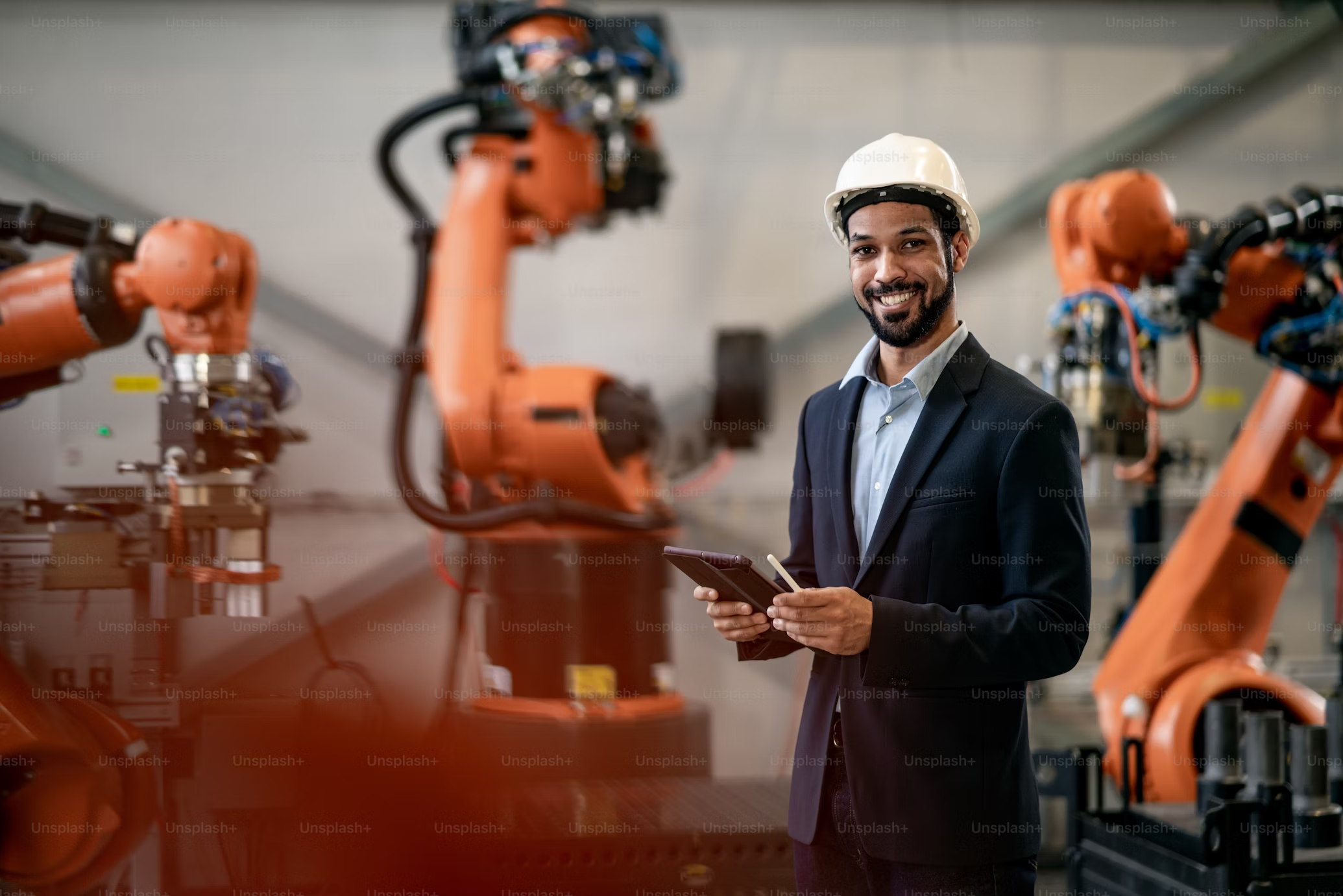
Artificial Intelligence (AI) is no longer a concept of science fiction; it's has now become woven into the fabric of our daily lives. From smart assistants that help manage our schedules to recommendation algorithms that suggest what we might want to watch next, AI is becoming more integrated and indispensable. As we stand on the brink of a new decade, it’s crucial to explore how AI will continue to evolve and shape our world.
AI in Healthcare: Revolutionizing Patient Care

One of the most promising areas where AI will make a significant impact will definitely have to do with healthcare. The past decade has seen the rise of AI-powered diagnostic tools that assist doctors in detecting diseases more accurately and at earlier stages. Over the next ten years, this technology is expected to improve, prospectively leading to a future where AI can predict health issues before they arise (or so I think).
For instance, AI algorithms could analyze a person’s medical history, genetic information, and not to forget lifestyle data to provide personalized health recommendations. Wearable devices, already in widespread use, could continuously monitor vital signs and notify healthcare providers of any anomalies in real-time. This kind of predictive healthcare would not only save lives but also reduce the burden on healthcare systems by preventing diseases rather than just treating them and to a large extent help ease up stress on the health personnels available.
Moreover, AI-driven drug discovery is poised to speed up the development of new treatments. By analyzing vast datasets of biological information, AI can identify potential drug candidates faster than traditional methods, significantly reducing the time it takes to bring new medicines to market and not just medicines but quality medicines.
The Challenges
However, the integration of AI in healthcare also raises ethical and practical concerns. Data privacy is a major issue, as the more data AI systems have access to, the better they perform , but this can also be a loophole , that is easily exploitable. Thus ensuring that personal health data is secure and used ethically is critical. Additionally, while AI can assist in diagnostics and treatment, the human touch in healthcare remains irreplaceable. The challenge will be in finding a balance between AI’s efficiency and the empathy that only human caregivers can provide, which as we have found out AI does not have or possess emotions, so passing over the kind of empathy that human medical personnels can provide remains a challenge.
AI in Education: Personalized Learning on a Global Scale

Education is another sector that will undergo a profound transformation due to AI. AI offers the potential to create personalized learning experiences tailored to each student’s needs, pace, and learning style , this will really prove beneficial to the learning process in a lot of places as the concept of learning at your own pace is really a big problem in many places including my country Nigeria.
Imagine a classroom where each student is guided by an AI tutor that adjusts the curriculum in real-time based on their performance. Struggling with a concept? The AI can provide additional resources, explanations, and practice problems until the student grasps it. Excelling in a subject? The AI can introduce more challenging material to keep the student engaged and growing.
Beyond individualized learning, AI can also help educators by automating administrative tasks such as grading and attendance tracking. This would free up teachers to focus more on teaching and less on paperwork. Additionally, AI could identify patterns in student performance data, helping educators intervene early when a student is at risk of falling behind . The benefits can not be understated
The Challenges
Despite its potential, the use of AI in education raises important questions. How do we ensure that AI-driven education systems are accessible to all, regardless of socioeconomic status? There is also the concern of over-reliance on technology. While AI can enhance learning, the importance of human interaction and mentorship in education cannot be overstated. The challenge will be to integrate AI in a way that complements, rather than replaces, traditional teaching methods.
AI in Business: Transforming Industries and Creating New Opportunities

The impact of AI on business is already profound, and it’s only going to grow honestly. In the coming decade, AI will continue to revolutionize industries by optimizing operations, enhancing customer experiences, and creating new business models.
For example, in manufacturing, AI-driven robotics and automation are streamlining production processes, reducing waste, and increasing efficiency a very good example of this can be seen from the insides of Tesla’s manufacturing complex where almost every aspect of production is mechanized. In retail, AI-powered recommendation engines are helping businesses better understand customer preferences and tailor their offerings accordingly. Financial services are using AI for everything from fraud detection to algorithmic trading.
Moreover, AI is opening up entirely new opportunities. The rise of AI-as-a-Service (AIaaS) platforms allows businesses of all sizes to leverage AI without needing to build expensive infrastructure. This democratization of AI could lead to an explosion of innovation, with startups and small businesses creating AI-driven products and services that were previously unimaginable.
The Challenges
However, the widespread adoption of AI in business also presents challenges. There are concerns about job displacement as automation replaces human workers in certain roles. While AI will create new jobs, particularly in tech and data science, there will need to be significant investment in reskilling and upskilling programs to help workers transition to these new roles, Now this is where the main concern is , especially in my country the debate has been raging for a long time now , people fear that Ai will take over employments , but I feel that with the right approach such an outcome might be averted.
Additionally, businesses must navigate the ethical implications of AI, particularly when it comes to data use and decision-making. Transparency in AI algorithms is crucial, especially in sectors like finance and healthcare, where AI-driven decisions can have significant consequences.
AI and Ethics: Navigating the Moral Landscape
As AI becomes more prevalent, the ethical considerations surrounding its use are becoming increasingly important. AI systems, by their very nature, reflect the data they are trained on, which can include biases present in that data. This has led to concerns about AI perpetuating or even exacerbating existing inequalities.
For example, facial recognition technology has been criticized for being less accurate in identifying people of color, leading to potential discrimination. Similarly, AI in hiring processes may inadvertently favor candidates who fit certain biased criteria present in historical hiring data.
To address these issues, it’s essential that AI development includes diverse perspectives and that there are rigorous checks in place to identify and mitigate bias. Additionally, there needs to be a broader societal conversation about the role of AI and how it can be used ethically. This includes setting guidelines for the acceptable use of AI, particularly in areas like surveillance, law enforcement, and autonomous weapons.
The Challenges
One of the biggest challenges in AI ethics is the pace of technological advancement. As AI continues to evolve rapidly, it’s difficult for regulatory frameworks to keep up. This can lead to a situation where AI is being deployed in ways that society is not fully prepared for, leading to potential harm.
Moreover, the global nature of AI development means that ethical standards need to be consistent across borders. This is a significant challenge, given the varying cultural and legal perspectives on issues like privacy and surveillance.
AI and the Workforce: Preparing for the Future

Source
AI’s impact on the workforce is a topic of much debate. While AI has the potential to automate many tasks, it also opens up new opportunities for human workers. Honestly for me I feel the key will be in how we manage this transition.
One area where AI will have a significant impact is in augmenting human capabilities. Rather than replacing workers, AI can be used to assist them, making them more productive and efficient. For example, in fields like customer service, AI chatbots can handle routine inquiries, freeing up human agents to deal with more complex issues.
Additionally, the rise of AI is likely to create new job categories that don’t exist yet. Just as the internet led to the creation of jobs like social media manager and app developer, AI will lead to the creation of roles we can’t yet imagine.
The Challenges
However, the transition to an AI-driven economy will not be without its challenges. There is a risk that certain jobs will be displaced, particularly those involving routine, repetitive tasks. To mitigate this, there needs to be a focus on reskilling and upskilling workers, ensuring they have the skills needed for the jobs of the future.
Moreover, there is a need to ensure that the benefits of AI are shared broadly across society. If the economic gains from AI are concentrated in the hands of a few, it could lead to increased inequality and social unrest.
Conclusion: Embracing the AI-Powered Future
The next decade will be a defining period for AI as it continues to evolve and integrate into every aspect of our lives. From healthcare and education to business and the workforce, AI holds the potential to transform our world in ways we can only begin to imagine. However, with this potential comes responsibility.
As we embrace the AI-powered future, it’s very important that we address the challenges and ethical considerations that come with it. By doing so, we can ensure that AI is used to enhance human capabilities, improve quality of life, and create a better future for all.
Posted Using InLeo Alpha
AI is simply the future of technological revolution. I really admire the effect it is already having. Just as many people feared, I dont think it will ever take the jobs from humans, but I hope it makes everything easier. Look at what AI content creation and editing has done to improve productivity, its just awesome.
it really is amazing
AI have taken all over the world making work simple and easy.